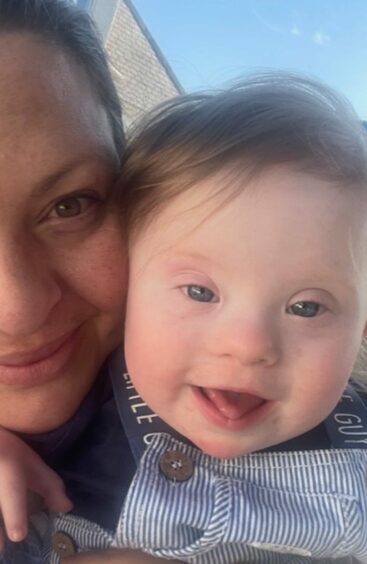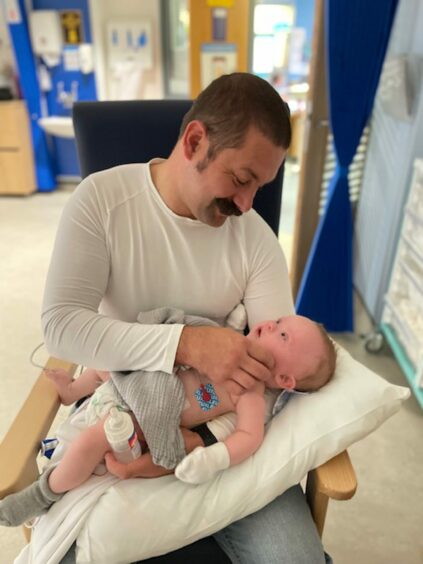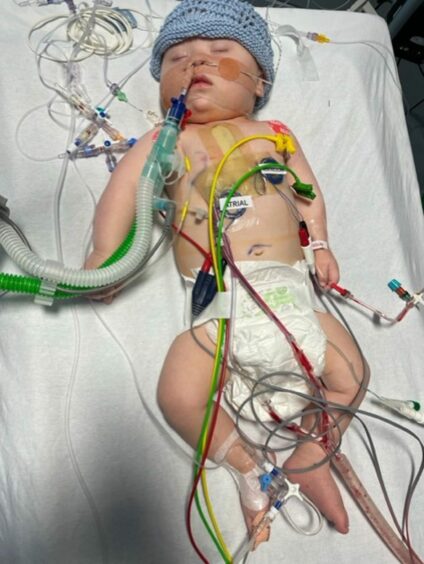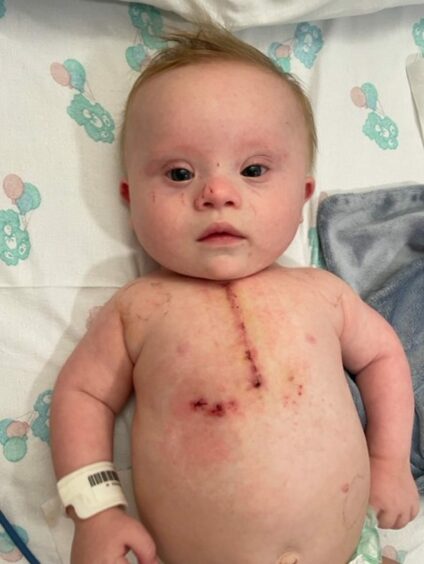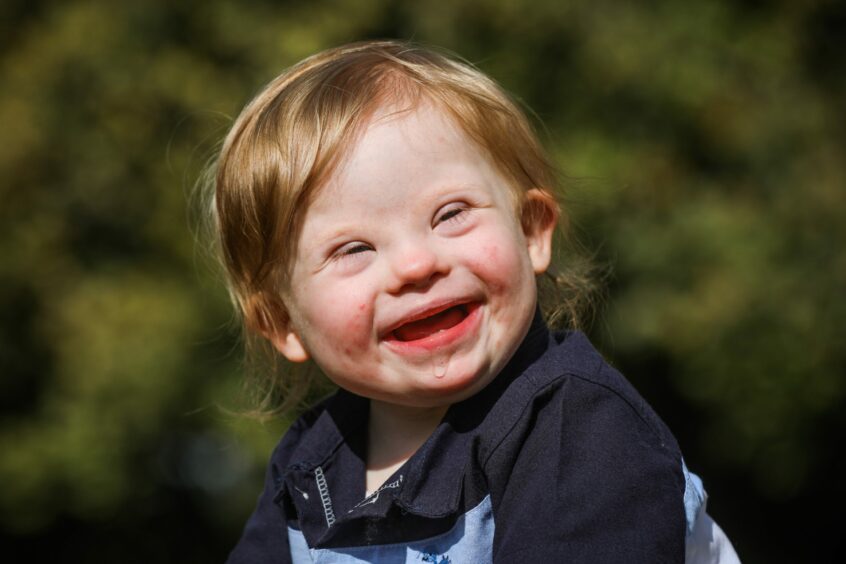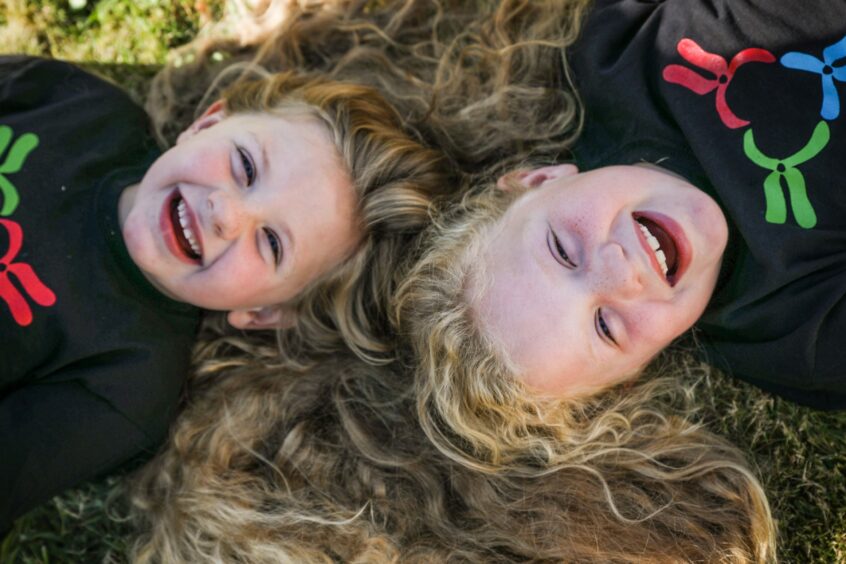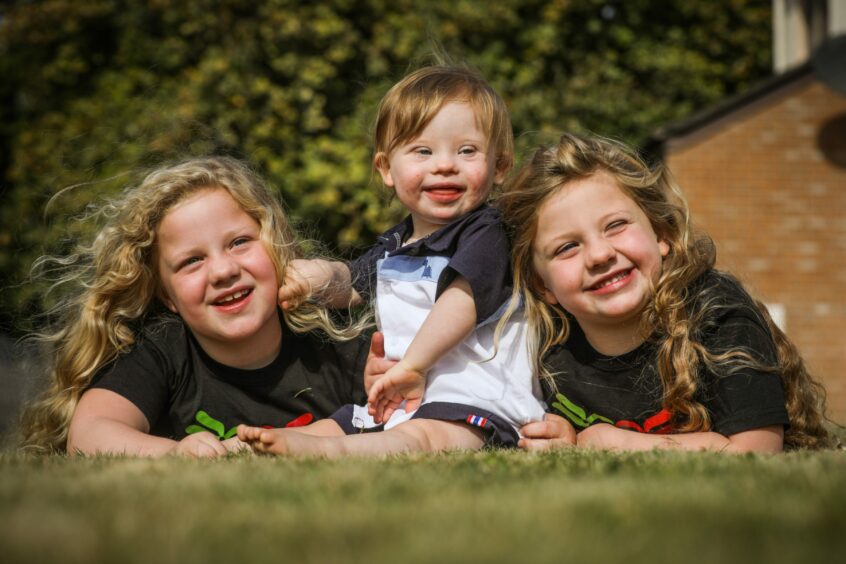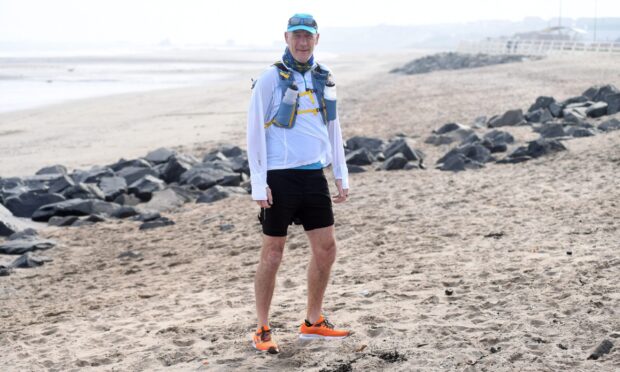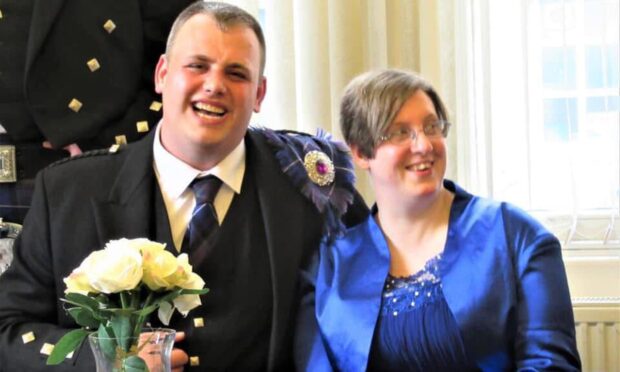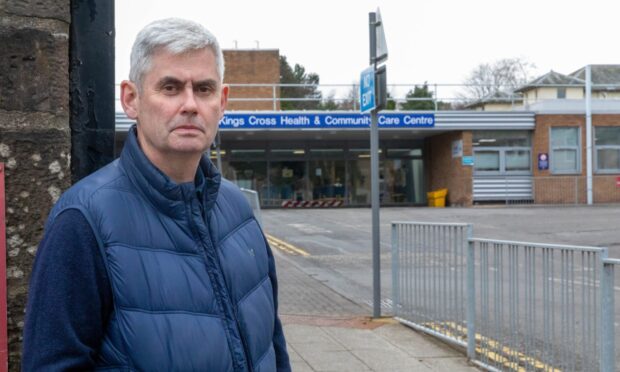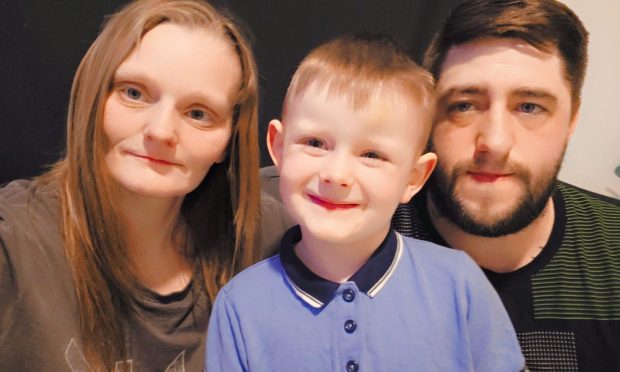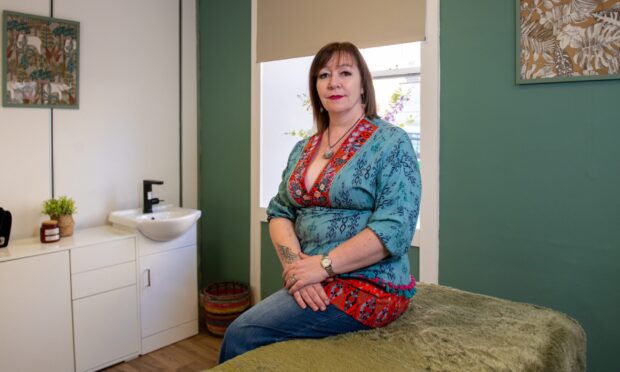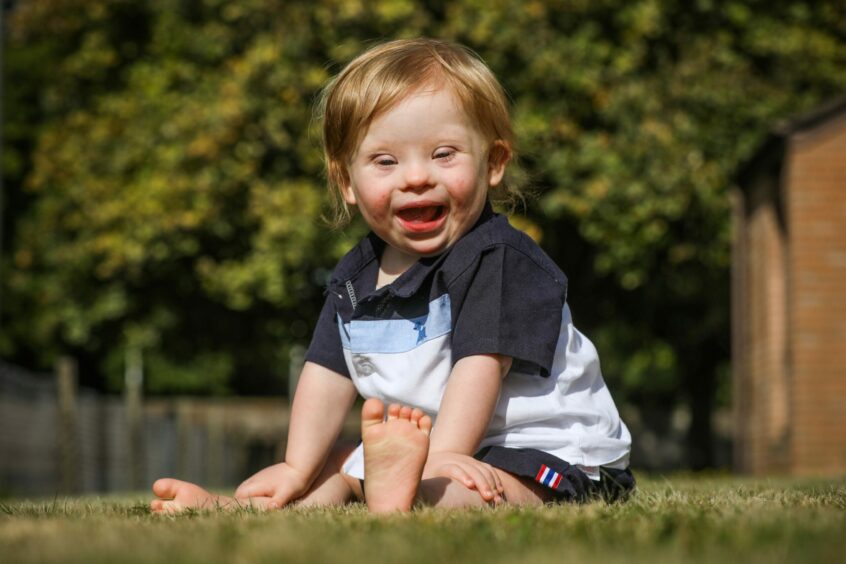
Arbroath mum Katherine Strachan was sitting having lunch in a packed Pizza Hut with her five-month-old son when a stranger came over to her table and told her something she will never forget.
It was the day after her son Gregor, who was born with Down’s syndrome, was discharged from the Royal Children’s Hospital in Glasgow after undergoing open heart surgery.
“This big, burly Glaswegian chap, covered in tattoos, came over to me.
“He leaned over the table and said: ‘That’s a Downs baby.’
“And I replied: ‘Yes’. I remember thinking to myself ‘oh my goodness where is this going?’
“He then stood up, he was six foot something, and pointed across the packed restaurant and said ‘Oh we had a Down’s baby!’
“The man spoke about his son, who was now 16-17, and how they go to the gym and play rugby together.
“Then he looked at me and with tears rolling down his face he told me: “You are so, so blessed.
“That baby has chosen you to be its mum and your life will never be the same.
“Honestly, you are so lucky.
“And I thought, ‘yeah I am actually. I am very blessed’.”
Little did he know just how blessed Katherine felt as her son had just survived major heart surgery.
And to mark the first anniversary of the milestone event, Gregor’s two big sisters are set to have their long hair chopped on September 19 to raise money for Down’s Syndrome Scotland.
When did Katherine find out Gregor had Down’s syndrome?
Katherine, 41, learned that something wasn’t right during her pregnancy when she had her 12-week scan.
“The sonographer said she wasn’t 100 per cent sure of the measurements at the back of the baby’s neck,” she explained.
“I wasn’t given any further information but went and had a blood test.
“Then the results came back that there was an over 90 per cent chance the baby would be born with Down’s syndrome.
“We knew it wasn’t definite though, so we kind of forgot about it.”
What is Down’s syndrome?
A baby born with Down’s syndrome has more of chromosome 21 in some or all of the cells that make up their DNA. It’s also known as Trisomy 21.
People with Down’s syndrome may lead active, healthy and independent lives.
Most will have mild to moderate learning disabilities and some may have more complex needs.
Blood tests confirmed Down’s syndrome
Katherine had previously worked with adults born with Down’s syndrome so she was aware of the condition and the health issues involved.
But she revealed it was still a shock when Gregor was born on April 23 last year in Ninewells Hospital, Dundee.
“It was a bit of a shock because when you have three children already you just assume this pregnancy will be the same as the others,” she said.
“But as far as we were concerned he was our baby and so however he was born, he was still going to be loved regardless.”
Katherine added: “When they put him on my chest my initial reaction was that he looked the spitting image of one of his sisters and that is what my husband Matthew, 43, and I said to each other.”
Blood tests were carried out which confirmed Gregor was born with Down’s syndrome.
Tests revealed Gregor’s heart defect
However, the next day more tests were carried out on Gregor and they revealed there was something wrong.
Katherine said: “The lovely midwife sat next to me, was holding my hand then the consultant came in and told me Gregor had been taken to the neonatal intensive care unit as something wasn’t right.
“He was put on antibiotics and given oxygen.
“The pressure on his lungs was very high.
“They did some scans and discovered he had two holes in his heart – one at the top and one at the bottom.
“It was decided he needed open heart surgery.”
Gregor’s open heart surgery
Katherine said she asked doctors a lot of questions so she could find out as much as she could about the surgery.
She said: “It was scary being told that they basically stop his body working. He is kept alive by a machine.
“But we were told it would be fine and that it is an everyday surgery they do at the Royal Children’s Hospital in Glasgow.
“The hardest part was saying goodbye to him before he had the operation.
“We took our masks off, gave him a kiss and he was already under by that point. The nurse said right off you go and we left the room.
“We had a cuddle in the corridor and were both in tears. We felt numb.
“The surgery took six hours.”
After the surgery the couple went in to see him in intensive care.
Katherine continued: “He was lying down with a little knitted hat on with all these wires and tubes but the consultant was very happy with how the surgery had gone.
“Gregor was in intensive care for 24 hours and they wanted to see if his heart would start on its own and it did.
“So he was taken off the ventilator and transferred to the children’s ward.
“He was discharged on September 26.”
Gregor treated for bronchitis
However, a month after his surgery, Gregor had bronchitis.
He was tube fed and monitored at the children’s ward in Ninewells Hospital where he stayed for five days.
Katherine said he is vulnerable to infection due to having a suppressed immune system.
However after a few days in hospital, he recovered.
‘A happy, bouncy boy’
Since then Gregor has had regular cardiac check ups.
And he continues to build up his strength after his heart surgery.
Katherine said: “His heart is functioning the way it should be and you can hardly see his scar.
“He is 17 months old this month and just a happy, bouncy baby.
“We are very grateful to all the NHS staff who took such good care of him.”
Sponsored haircuts for Down’s syndrome Scotland
Katherine’s two daughters Katrina, 7, and Sophie, 5, wanted to do something to show their support for their baby brother as well as helping other families affected by Down’s syndrome.
So on September 19, on the anniversary of Gregor’s open heart surgery, they are having a sponsored hair cut with 14 inches chopped off their long hair at local salon Bonnie Locks to raise money for Down’s Syndrome Scotland.
Katrina and Sophie, who attend Muirfield Primary, will also be donating their hair to the Princess Trust.
Katherine added: “Matthew and I are very proud of them that they are wanting to raise money for Down syndrome Scotland to help other families who have babies like Gregor.
“They just adore their little brother and are forever trying to help him.
“They have been learning Makaton to help communicate with him.
“The girls are now able to sign ‘hello Gregor I’m your sister.’
“It’s been an educational curve for the whole family.”
She added: “I look at Gregor and sometimes I forget how much he has been through.
“We definitely feel blessed to have him.”
